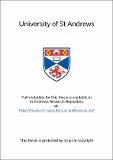The influence of social structure on vocal signatures in group-living resident killer whales (Orcinus orca)
Abstract
Constant association with a specific set of individuals appears to be advantageous for some species. This lifestyle then generates many modifications on individual behavior, especially to coordinate relationships between individuals within the group, and vocal signals are likely to be shaped by social interactions as they may play a role in mediating social roles. Northern resident killer whales (orcinus orca) use group-specific signatures within their stable social system but to date no study has thoroughly examined calling behavior amongst individuals within different family groups. Thus, the potential for individual-specific signatures has not been identified. This study aimed to describe the effects of their rigid social structure on the vocal behavior of individuals through comparing the intra-individual call similarity with their inter-individual similarity. A towed beamforming array of hydrophones allowed calls to be ascribed to specific individuals. This study quantified call similarity through the ability of a pattern recognition neural network to discriminate between frequency contours of individuals within the same matrilineal group, in different matrilineal groups but the same vocal clan and across different clans. Calls were found to contain features distinct to an individual, but these features are less prominent than group-specific features. Similarity of both the high and low frequency contours was strongly affected by the social relationship of pairs of whales, with the network having the highest error rate for same whale comparisons, a lower error rate for comparisons within a matrilineal group, and the lowest error rate for comparisons between individuals in different matrilineal groups. The correlation between social relationship and acoustic similarity suggests social learning as the mechanism for transmission and that group identity has a stronger influence on the time-frequency structure of stereotyped killer whale calls than individual identity. The social bonds between groups of individuals appear to take precedence over individual relationships within this population.
Type
Thesis, MPhil Master of Philosophy
Collections
Items in the St Andrews Research Repository are protected by copyright, with all rights reserved, unless otherwise indicated.

